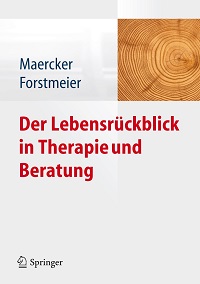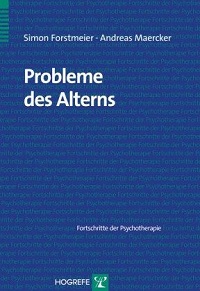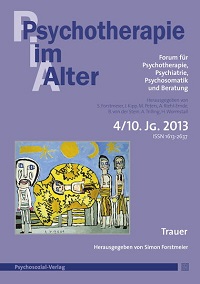Prof. Dr. Simon Forstmeier

Professur für Entwicklungspsychologie und Klinische Psychologie der Lebensspanne
Universität Siegen
Fakultät II - Department Psychologie
Entwicklungspsychologie und Klinische Psychologie der Lebensspanne
Adolf-Reichwein-Str. 2a
57076 Siegen
Raum: AR-NB 113
Telefon: +49 (0)271 740-4020
Telefax: +49 (0)271 740-4555
Email: simon.forstmeier(at)uni-siegen.de
Sprechstunde in der Vorlesungszeit: derzeit per Email oder Videokonferenz
Sprechstunde in der vorlesungsfreien Zeit: derzeit per Email oder Videokonferenz
Ausführliches Curriculum Vitae English CV
Funktionen an der Universität Siegen
- Inhaber der Professur für Entwicklungspsychologie und Klinische Psychologie der Lebensspanne
- Mitglied im Forschungskolleg Siegen (FoKoS)
- Co-Sprecher des Gerontologie-Netzwerks SIegen (GeNeSi)
- Stellv. Vorsitzender des Scientific Advisory Board der Lebenswissenschaftlichen Fakultät der Universität Siegen
- Mitglied im Prüfungsausschuss "Bachelor Pädagogik: Entwicklung und Inklusion"
- Mitglied der Siegener ForscherInnengruppe zu Inklusion in Bildungs- und Sozialräumen (SILBIS)
Forschungsschwerpunkte
- Selbstregulation und Motivation über die Lebensspanne (z. B. Belohnungsaufschub, motivationale Reservekapazität bei Demenz)
- Selbstregulation und Motivation als Prädiktor für die kognitive und affektive Gesundheit im Alter
- Experimentelle Reminiszenzforschung
- Reminiszenzinterventionen (strukturierter Lebensrückblick, Biografiearbeit)
- Klinische Gerontopsychologie und Alterspsychotherapie (bei Demenz, Traumafolgestörungen, Depression)
- Selbstregulationstrainings ("Willenstraining", Training volitionaler Kompetenzen)
- Interdisziplinäre Alternsforschung (im Kontext des Gerontologie-Netzwerks Siegen, GeNeSi), u. a. Technologische Unterstützung kognitiver und affektiver Prozesse
Kurzlebenslauf
- Seit 9/2014 Universitätsprofessor (W3) für Entwicklungspsychologie, Universität Siegen
- 1/2013 Habilitation, Erteilung der Venia Legendi für das Fachgebiet Psychologie, Universität Zürich, Schweiz
- 11/2005-8/2014 Oberassistent am Psychologischen Institut, Psychopathologie und Klinische Intervention, Universität Zürich, Schweiz
- 4/2005-10/2005 Wissenschaftlicher Mitarbeiter am Fachbereich Psychologie, Klinische Psychologie und Psychotherapie, Universität Trier
- 5/2005 Approbation als Psychologischer Psychotherapeut, Landesamt für Soziales, Jugend und Versorgung Rheinland-Pfalz
- 12/2004 Promotion in Psychologie (Dr. rer. nat.), Universität Trier („summa cum laude“)
- 4/2002-3/2005 Ausbildung zum Psychologischen Psychotherapeuten am Ausbildungsinstitut des St. Franziska-Stifts, Bad Kreuznach
- 5/2001-3/2005 Klinischer Psychologe an der Psychosomatischen Rehabilitationsklinik St. Franziska-Stift, Bad Kreuznach
- 4/2001 Diplom in Psychologie, Technische Universität Darmstadt (“sehr gut”)
- 1997-1998 Graduate Visiting Student in Psychology, University of Warwick, UK
- 1994-2001 Studium der Psychologie, Technische Universität Darmstadt
Preise und Auszeichnungen
- 2012 Margret und Paul Baltes Preis für verhaltens- und sozialwissenschaftliche gerontologische Forschung, verliehen durch die Deutsche Gesellschaft für Gerontologie und Geriatrie (DGGG)
- 2012 und 2014 im Nominationsverfahren zum Lehrpreis der Universität Zürich zu den 10 besten Dozierenden der gesamten Universität Zürich gewählt
- 2011 Posterpreis der Deutschen Gesellschaft für Psychiatrie, Psychotherapie und Neurologie (DGPPN)
- 2008 Vontobel-Preis für Alter(n)sforschung der Familien-Vontobel-Stiftung, Zü-rich, Schweiz
- 2005 Förderpreis für herausragende Dissertationen des Freundeskreises Trierer Universität, Deutschland
- 2001-2002 Dissertationsstipendium vom Forschungszentrums für Psychobiologie und Psychosomatik (FPP) der Universität Trier, Deutschland
- 1997-1998 Stipendium als Graduate Visiting Student an der University of Warwick, UK, vom Deutschen Akademischen Austauschdienst (DAAD)
Gremienmitarbeit
- Seit 2021 Associate Editor der Zeitschrift "GeroPsych: The Journal of Gerontopsychology and Geriatric Psychiatry"
- Seit 2015 Mitherausgeber der Buchreihe "Studien zur Resilienzforschung" des Springer-Verlages
- Seit 2012 Mitglied des Editorial Boards der Zeitschrift "Psychotherapie im Alter"
- 2011-2014 Mitglied der Programmkommission und Co-Leitung des Certificate of Advanced Studies (CAS) Gerontopsychologie, Universität Zürich
- 2010-2012 Vorstandsmitglied der Schweizerischen Gesellschaft für Gerontologie (SGG)
- 2009-2012 Präsident der Schweizerischen Fachgesellschaft für Gerontopsychologie (SFGP)
- 2007-2013 Vorstandsmitglied der Schweizerischen Fachgesellschaft für Gerontopsychologie (SFGP)
- 2008-2014 Mitglied der Faculty der International Max Planck Research School on the Life Course (LIFE)
- 2007-2019 Mitglied des Editorial Advisory Boards des "Open Psychology Journal"
Ausgewählte Publikationen
Die vollständige Publikationsliste finden Sie hier.
Momeni, K., Amani, R., Janjani, P., Majzoobi, M. R., Forstmeier, S. & Nosrati, P. (2022). Attachment styles and happiness in the elderly: the mediating role of reminiscence styles. BMC Geriatrics, 22, 349. https://doi.org/10.1186/s12877-022-03053-z
Fereydouni, S. & Forstmeier, S. (2022). An Islamic form of logotherapy in the treatment of depression, anxiety and stress symptoms in university students in Iran. Journal of Reli-gion and Health, 61, 139-157. https://doi.org/10.1007/s10943-021-01495-0
Majzoobi, M. R. & Forstmeier, S. (2022). The relationship between the reminiscence of relationship-defining memories and marital outcomes: A systematic review and meta-analysis. Journal of Family Theory & Review, 14, 7-27. https://doi.org/10.1111/jftr.12442
Zimmermann, S., van der Hal, E., Auerbach, M., Brom, D., Ben-Ezra, L., Tischler, R., Cassif-Weissberg, L., Nof, R., & Forstmeier, S. (2021). Life review therapy for Holocaust survivors (LRT-HS): Two systematic case studies. Psychotherapy. Advance online publication. https://doi.org/10.1037/pst0000419
Becker, T., Martin, F., Wilz, G., Risch, A. K., Kessler, E.-M. & Forstmeier, S. (2021). Psychotherapie im höheren Lebensalter in der Psychotherapieausbildung: Eine Bestandsaufnahme. Zeitschrift für Klinische Psychologie und Psychotherapie, 49, 172-181. https://doi.org/10.1026/1616-3443/a000593
Hajek, A., Forstmeier, S. …. (2021). Health-related quality of life and ego integrity among the oldest old – Evidence from the multicenter AgeCoDe-AgeQualiDe study. Archives of Gerontology and Geriatrics, 95, 104408. https://doi.org/10.1016/j.archger.2021.104408
Thoma, M.V., Kleineidam, L., Forstmeier, S., Maercker, A., Weyerer, S., Eisele, M., van den Bussche, H., König, H.-H., Röhr, S., Stein, J., Wiese, B., Pentzek, M. Bickel, H., Maier, W., Scherer, M., Riedel-Heller, S.G., & Wagner, M. (2020). Associations and correlates of general versus specific successful ageing components. European Journal of Ageing. https://doi.org/10.1007/s10433-020-00593-4
Schmidt, J., Wartenberg-Demand, A. & Forstmeier, S. (2020). Equine-assisted biographical work (EABW) with individuals in the second half of life: study protocol of a multicentre randomised controlled trial. Trials, 21:857. https://doi.org/10.1186/s13063-020-04784-3
Forstmeier, S., van der Hal, E., Auerbach, M., Maercker, A., & Brom, D. (2020). Life review therapy for Holocaust survivors (LRT-HS): Study protocol for a randomised controlled trial. BMC Psychiatry, 20, 186. https://doi.org/10.1186/s12888-020-02600-5
Hesse, M., Forstmeier, S., & Radbruch, L. (2019). Patients’ priorities in a reminiscence and legacy intervention in palliative care. Palliative Care & Social Practice, 13, 1-18. https://doi.org/10.1177/2632352419892629
Hesse, M., Forstmeier, S., Cuhls, H., & Radbruch, L. (2019). Volunteers in a biography project with palliative care patients – a feasibility study. BMC Palliative Care, 18:79. https://doi.org/10.1186/s12904-019-0463-0
Hesse, M., Forstmeier, S., Mochamat, M., & Radbruch, L. (2019). A review of biographical work in palliative care. Indian Journal of Palliative Care, 25, 445-454. https://doi.org/10.4103/IJPC.IJPC_16_19
Zimmermann, S. & Forstmeier, S. (2018). From fragments to identity: Reminiscence, life review and well-being of Holocaust survivors. An Integrative Review. Aging & Mental Health, Dec 6:1-25. https://doi.org/10.1080/13607863.2018.1525608
Thoma, M.V., Forstmeier, S., Schmid, R., Keller, O., Xepapadakos, F., Schreiter Gasser, U., Blessing, A., Ropohl, A., Bieri-Brünig, G., Debeer, D., & Maercker, A. (2018). Preliminary evidence for an increased likelihood of a stable trajectory in mild cognitive impairment in individuals with higher motivational abilities. BMC Geriatrics, 18(181). https://doi.org/10.1186/s12877-018-0865-5
Göllner, L., Ballhausen, N., Kliegel, M. & Forstmeier, S. (2018). Delay of Gratification, Delay Discounting and their associations with age, episodic future thinking, and future time perspective. Frontiers in Psychology, Jan 25;8:2304. https://doi.org/10.3389/fpsyg.2017.02304
Bohlken, J., Weber, S. A., Forstmeier, S., Kohlmann, T. & Rapp, M. A. (2017). Reminiscence therapy for depression in dementia: An observational study with matched pairs. Gero-Psych: The Journal of Gerontopsychology and Geriatric Psychiatry, 30, 145-151. https://doi.org/10.1024/1662-9647/a000175
Pfeifer, L., Horn, A. B., Maercker, A. & Forstmeier, S. (2017). Caregiver perception of apathy in persons with mild cognitive impairment or Alzheimer's disease: a longitudinal study. Aging and Mental Health, 21, 494-500. https://doi.org/10.1080/13607863.2015.1118678
Fankhauser, S., Maercker, A. & Forstmeier, S. (2017). Social network and cognitive functioning in old age. Zeitschrift für Gerontologie und Geriatrie, 50, 123-131. https://doi.org/10.1007/s00391-016-1178-y
Thoma, V. M., Maercker, A. & Forstmeier, S. (2017). Evidence for different trajectories of delay discounting in older adults with mild cognitive impairment and mild Alzheimer’s disease. Journal of Gerontology: Psychological Sciences, 72, 956-965. https://doi.org/10.1093/geronb/gbw010
Hänggi, J., Lohrey, C., Drobetz, R, Baetschmann, H., Forstmeier, S., Maercker, A., Jäncke, L. (2016). Strength of structural and functional frontostriatal connectivity predicts self-control in the healthy elderly. Frontiers in Aging Neuroscience, 8, 307. https://doi.org/10.3389/fnagi.2016.00307
Forstmeier, S. & Maercker, A. (2015). Motivational processes in mild cognitive impairment and Alzheimer's disease: results from the Motivational Reserve in Alzheimer's (Mo-ReA) study. BMC Psychiatry, 15(1), 293. https://doi.org/10.1186/s12888-015-0666-8
Forstmeier, S., Maercker, A., Savaskan, E. & Roth, T. (2015). Cognitive behavioural treatment for mild Alzheimer's patients and their caregivers (CBTAC): study protocol for a randomized controlled trial. Trials, 16(1), 526. https://doi.org/10.1186/s13063-015-1043-0
Simmen-Janevska, K., Forstmeier, S., Krammer, S. & Maercker, A. (2015). Does Trauma impair self-control? Differences in delay discounting between former indentured child laborers and non-traumatized controls. Violence and Victims, 30, 1068-1081. https://doi.org/10.1891/0886-6708.vv-d-13-00174
Fankhauser, S., Forstmeier, S., Maercker, A., Luppa, M., Luck, T. & Riedel-Heller, S. G. (2015). Risk of dementia in older adults with low versus high occupation-based motivational processes: Differential impact of frequency and proximity of social network. Journal of Geriatric Psychiatry and Neurology, 28, 126-135. https://doi.org/10.1177/0891988714554706
Drobetz, R., Hänggi, J., Maercker, A., Kaufmann, K., Jäncke, L. & Forstmeier, S. (2014). Structural brain differences between elderly individuals with high versus low delay of grati-fication. Behavioural Neuroscience, 128, 134-145.
Fankhauser, S., Drobetz, R., Mortby, M., Maercker, A. & Forstmeier, S. (2014). Depressive symptoms in later life: Differential impact of social support and motivational processes on depression in individuals with and without cognitive impairment. European Journal of Ageing, 11, 321-332.
Schwarzbach, M., Luppa, M., Forstmeier, S., König, H.-H. & Riedel-Heller, S. G. (2014). Social relations and depression in late life – A systematic review. International Journal of Geriatric Psychiatry, 29, 1-21.
Pfeifer, L., Drobetz, R., Fankhauser, S., Mortby, M., Maercker, A. & Forstmeier, S. (2013). Caregiver rating bias in Mild Cognitive Impairment and early-stage Alzheimer’s disease: Impact of caregiver burden and depression on rating discrepancy across domains. International Psychogeriatrics, 25, 1345-1355.
Preschl, B., Maercker, A., Wagner, B., Forstmeier, S., Baños, R., Alcañiz, M., Castilla, D., Bo-tella, C. (2012). Life-review intervention with computer supplements for depression in the elderly: A randomized controlled trial. Aging and Mental Health, 16, 964-974.
Drobetz, R., Maercker, A., Spiess, C. K., Wagner, G. G. & Forstmeier, S. (2012). A household study of self-regulation in children: Intergenerational links and maternal antecedents in children’s self-regulation. Swiss Journal of Psychology, 71, 215-226.
Maercker, A., Forstmeier, S., Pielmaier, L., Spangenberg, L., Bähler, E. & Glaesmer, H. (2012). Adjustment disorders: Prevalence in a representative nationwide survey in Germany. Social Psychiatry and Psychiatric Epidemiology, 47, 1745-1752.
Pinquart, M. & Forstmeier, S. (2012). Effects of reminiscence interventions on psychological outcomes: A meta-analysis. Aging and Mental Health, 16, 541-558.
Forstmeier, S., Maercker, A., Maier, W., van den Bussche, H., Riedel-Heller, S., Kaduszkie-wicz, H., Pentzek, M., Weyerer, S., Bickel, H., Tebarth, F., Luppa, M., Wollny, A., Wiese, B., & Wagner, M. (2012). Motivational Reserve: Motivation-Related Occupational Abil-ities and Risk of Mild Cognitive Impairment and Alzheimer Disease. Psychology and Ag-ing, 27, 353-363.
Mortby, M., Maercker, A. & Forstmeier, S. (2011). Midlife motivational abilities predict apathy and depression in Alzheimer’s disease: The Aging, Demographics and Memory Study. Journal of Geriatric Psychiatry and Neurology, 24, 151-160.
Forstmeier, S. & Maercker, A. (2011). Selbstkontrolle im höheren Erwachsenenalter: Eine deutsche Version des Delay Discounting Tests von Kirby. Psychotherapie, Psychosomatik, Medizinische Psychologie, 61, 269-274.
Forstmeier, S., Drobetz, R. & Maercker, A. (2011). The Delay of Gratification Test for Adults (DoG-A): Validating a behavioral measure of self-motivation in a sample of older people. Motivation and Emotion, 35, 118-134.
Glaesmer, H., Gunzelmann, T., Brähler, E., Forstmeier, S. & Maercker, A. (2010). Traumatic experiences and post-traumatic stress disorder among elderly German: Results of a representative population-based survey. International Psychogeriatrics, 22, 661-670.
Forstmeier, S., Kuwert, P., Spitzer, C., Freyberger, H. J. & Maercker, A. (2009). Posttraumatic growth, social acknowledgment as survivors, and sense of coherence in former German child soldiers of World War II. American Journal of Geriatric Psychiatry, 17, 1030-1039.
Forstmeier, S. & Maercker, A. (2008). Motivational reserve: Lifetime motivational abilities influence cognitive and emotional health in old age. Psychology and Aging, 23, 886-899.
Maercker, A., Forstmeier, S., Enzler, A., Krüsi, G., Helfenstein, E., Hörler, E., Maier, C. & Eh-lert, U. (2008). Adjustment disorders, PTSD, and depressive disorders in old age: Findings from a community survey. Comprehensive Psychiatry, 49, 113-120.
Forstmeier, S. & Maercker, A. (2007). Comparison of two diagnostic systems for Complicated Grief. Journal of Affective Disorders, 99, 203-211.
Forstmeier, S. & Rüddel, H. (2007). Improving volitional competence is crucial for the efficacy of psychosomatic therapy: A controlled clinical trial. Psychotherapy and Psychoso-matics, 76, 89-96.
Monographien
Forstmeier, S. & Roth, T. (2017). Kognitive Verhaltenstherapie für Patienten mit leichter Alzheimer-Demenz und ihre Angehörigen. Berlin: Springer.
Maercker, A. & Forstmeier, S. (Hrsg.) (2012). Der Lebensrückblick in Therapie und Beratung. Berlin: Springer.
Forstmeier, S. & Maercker, A. (2008). Probleme des Alterns. Göttingen: Hogrefe.
Forstmeier, S. (2005). Willenstraining. Förderung volitionaler Kompetenzen in Psychotherapie und psychosomatischer Rehabilitation (Training of will. Improving volitional competences in psychotherapy and psychosomatic rehabilitation). Stuttgart: WiKu-Verlag.
Buchkapitel
Friedrich-Hett, T., Forstmeier, S. & Peters, M. (2022). Narrative Beratung und Therapie mit Älteren – Perspektiven aus systemischer, verhaltenstherapeutischer und psychodynamischer Sicht. In P. Jakob, M. Borcsa, J. Olthof & A. v. Schlippe (Hrsg)., Handbuch Nar-rative Praxis (S. 285-298). Vandenhoeck & Ruprecht.
Forstmeier, S. & Ochel, J. (2022). Applying exposure therapy to older adults. In. J. A. J. Smits, J. Jacquart, J. Abramowitz, J. Arch & J. Margraf, Clinical Guide to Exposure Therapy - Beyond Phobias. Springer Nature.
Forstmeier, S., Thoma, M. V. & Maercker, A. (2021). Motivational Reserve: The role of motivational processes in cognitive impairment and Alzheimer’s disease. In G. Sedek, T. M. Hess & D. R. Touron, Multiple pathways of cognitive aging: Motivational and contextu-al influences (pp. 128-158). New York: Oxford University Press.
Forstmeier, S. & Maercker, A. (2018). Altersprobleme. In J. Margraf & S. Schneider (Hrsg.), Lehrbuch der Verhaltenstherapie. Störungen im Erwachsenenalter (Bd. 2) (4. Aufl.). Heidelberg: Springer.
Kessler, E.-M. & Forstmeier, S. (2017). Life span developmental psychopathology. In N. A. Pachana (Ed.), Encyclopedia of Geropsychology. Singapore: Springer.
Forstmeier, S., Ibach, B. & Ruhwinkel, B. (2017). Psychotherapie im Alter. In S. Klöppel & F. Jessen (Hrsg.), Praxishandbuch Gerontopsychiatrie und –psychotherapie: Diagnostik und Therapie im höheren Lebensalter. München: Elsevier.
Forstmeier, S. (2014). Beginnende Alzheimer-Demenz. In A. Maercker, Alterspsychotherapie und klinische Gerontopsychologie (2. Aufl.). Heidelberg: Springer.
Internet-Ressourcen
Erinnern, erzählen, dabei sein: Online-Programm zur Begleitung eines persönlichen Lebensrückblicks: https://www.lebensrueckblick.com
Die vollständige Publikationsliste finden Sie hier.




